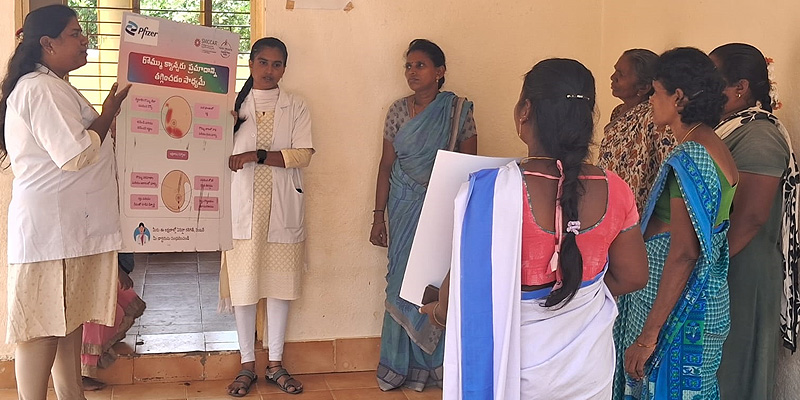Breast cancer is a concern all over the world including India. There are several factors that put one at an increased risk of this disease, including age, obesity, family history, genetics, early onset of menstruation, late menopause, late first childbirth, never having been pregnant, frequent alcohol consumption, and radiation exposure.
The most effective way to detect breast cancer at its early stage is through regular breast self-examination, clinical breast examination and mammography. It is recommended that women over the age of 40 get mammograms every year. During breast self-examination, women must check for signs such as breast lumps, thickening of the skin, changes in size or shape, inverted nipples, redness, dryness, flaking, abnormal nipple discharge, and pitting of the skin. If any of the above are found a doctor should be consulted without delay.

In addition to early detection, there are also several lifestyle choices that can be made to reduce one’s risk of developing breast cancer:
Maintaining a healthy weight: Obesity is associated with an increased risk for a number of serious health conditions, including breast cancer. This is why it is important to maintain a healthy weight through diet and exercise.
Regular exercise: Regular physical activity has been shown to decrease the risk of various health conditions such as type 2 diabetes, heart attack, stroke, and certain cancers including breast cancer.
Breastfeeding: The hormonal changes that occur during breastfeeding have been shown to delay the return of menstruation, thus reducing a woman’s lifetime exposure to hormones such as estrogen, which are associated with an increased risk of breast cancer.
Avoiding alcohol: When alcohol is metabolised in the body, it is broken down into acetaldehyde, a chemical that causes damage to DNA. The body is unable to repair this damage, thus leading to the potential development of cancer cells.
Certain specific lifestyle factors can also put one at a higher risk. For example, postmenopausal women undergoing hormone therapy, particularly the combination of estrogen and progestin, have an increased risk of breast cancer. However, this risk decreases significantly once therapy is discontinued.
Surgery is often the first line of treatment for breast cancer. Smaller tumours can be removed in isolation, while larger tumours may warrant the removal of the entire breast, also known as mastectomy. Chemotherapy involves the use of anti-cancer drugs to destroy cancer cells, while radiation therapy uses high-energy rays to target cancer cells. Hormone therapy is also an option for breast cancers that are sensitive to hormones like estrogen and progesterone. Targeted drug therapy targets specific genes and proteins that contribute to cancer growth. Depending on the individual case, oncologists may recommend a combination of these treatments for optimal outcomes.